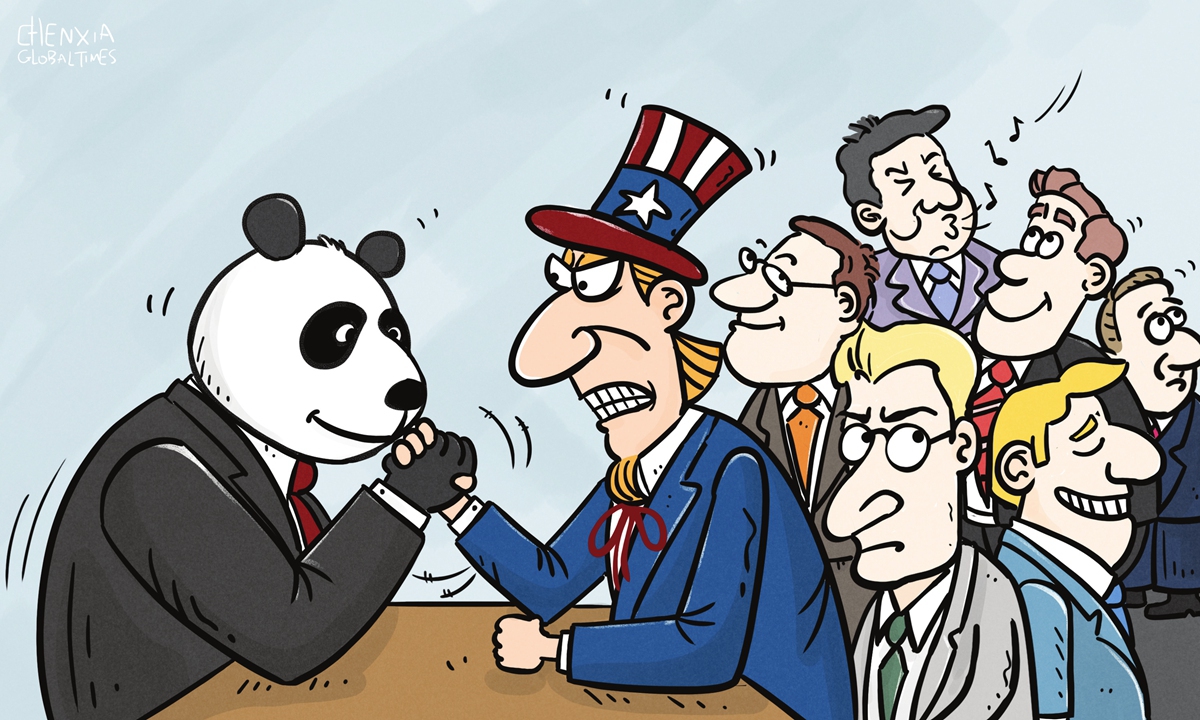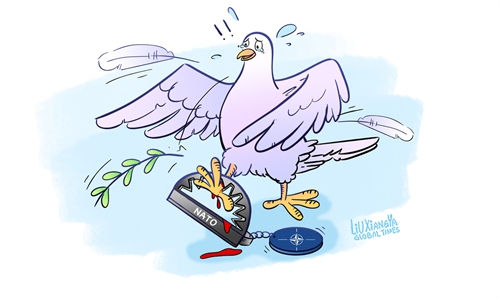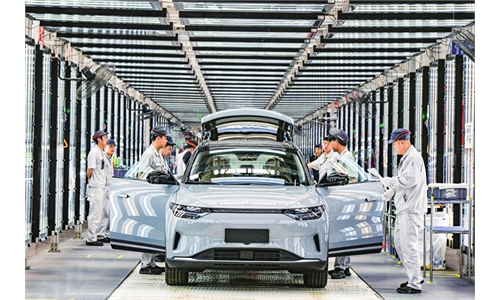Push for ‘Economic NATO’ faces challenges amid declining power and prestige of West

Illustration: Chen Xia/GT
In recent years, the strategic competition among major powers has surpassed global governance and cooperation to become the dominant discourse and behavioral logic in the international community. In this process, G7's presence has grown, particularly as it has become a platform for some countries to restrict China's development and suppress China's regular interactions with others.At the 2022 summit in Germany, G7 leaders created a global infrastructure and investment partnership to counter the influence of the China-proposed Belt and Road Initiative in developing countries. One year later, they issued a joint statement in Japan, hoping to address "China's non-market policies." Recently, G7 has been hyping up issues such as China's "overcapacity" and "unfair competition," once again targeting China's economy. Some Western scholars have even proposed that the West should not establish military security alliances in the Indo-Pacific region, and should instead seek to establish a new global economic security alliance.
With the rise of China's economic influence, G7 is hoping to create a coterie, containing China with the emergence of the concept of an "economic NATO." G7 has been heavily criticizing China's domestic policies, smearing and pressuring China on topics such as Taiwan, Xinjiang and Hong Kong, among others. It is also trying to block China's foreign policy. Former British prime minister Liz Truss once called on democracies to team up and counter the influence of China, turning the G7 into an "economic NATO." The group is also suggested to be expanded to the "D10" group of democracies.
Yet, currently, there is a gap between the bloc's expectations to create an "economic NATO" and the reality. The power and prestige of G7 have declined significantly. Failing to become an effective platform for addressing global economic issues, it has instead become a platform to divide the world and foster camp-based confrontation. Gideon Rachman of the Financial Times once wrote that G7 no longer represents most of the global economy.
Moreover, with the rise of the G20 and internal divisions within G7, G7's status has declined. In particular, the relatively small size of the group and its exclusion of emerging markets and even countries in the Global South prevent it from truly leading the discussion of global economic governance and advancing it as well as resolving international security and energy issues. On the contrary, these features may even lead to bloc politics and coteries. There are still many voices within G7 calling for the promotion of globalization, the prevention of a new cold war, and non-involvement in the strategic competition between China and the US.
If G7 is turned into an extremely confrontational and exclusive economic alliance, it will become an important lever for the US to implement economic "decoupling" and containment. It will also act as a vital platform for Washington to unite its allies to counter Beijing. In that case, a new cold war seems inevitable. Undoubtedly, this is detrimental to global economic development, peace and stability, and the resolution of global governance issues. Therefore, we need to communicate and cooperate on issues of common concern and those related to regional and global stable development.
For example, how to develop relations with developing countries and emerging markets is the core policy of G7, which not only includes China but also countries in Africa, Latin America, among others. This requires the bloc to establish a partnership and cooperation model based on mutually beneficial supply with emerging markets. Moreover, for global food and energy crises exacerbated by the prolonged deterioration of the Ukraine crisis, they require G7 to strengthen cooperation with developing countries to improve global food and energy security.
As a counterbalance of G7's possible economic aggression, China is improving global governance and promoting a new round of globalization through genuine multilateralism rather than a "small clique multilateralism." China will continue to strengthen cooperation and communication with various actors on the global stage while resisting and countering the mentality and behaviors of bloc confrontation.
The author is a research fellow with the Institute of European Studies, Chinese Academy of Social Sciences. opinion@globaltimes.com.cn



